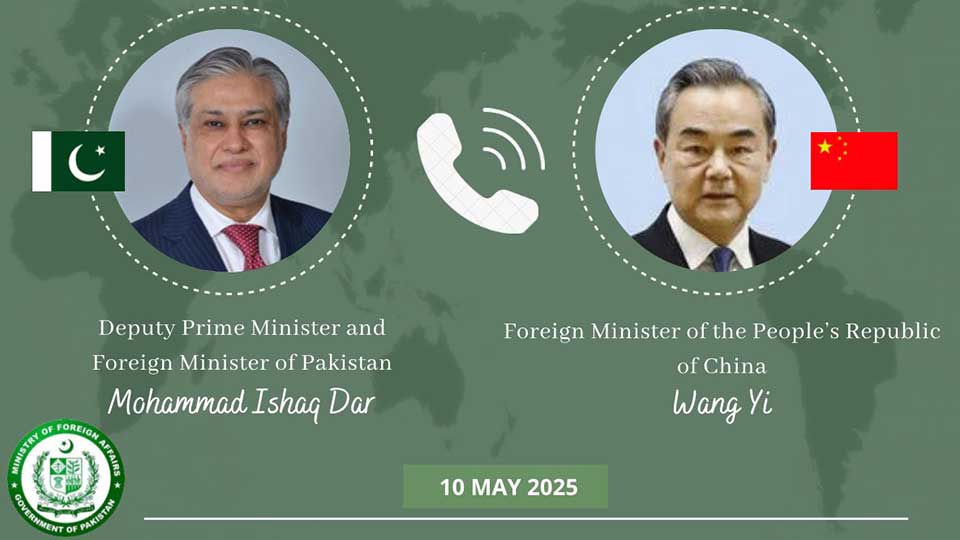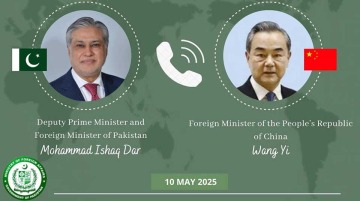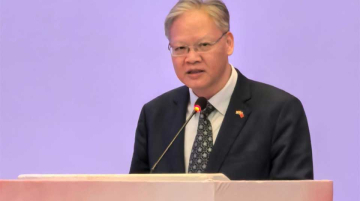
A fragile U.S.-brokered ceasefire reached on Saturday between India and Pakistan appears to be holding despite accusations from both sides that the other is violating the agreement.
While U.S. Secretary of State Marco Rubio and Vice President JD Vance were working directly with the prime ministers from both countries to bring an end to the fighting, China’s Foreign Minister Wang Yi was also working the phones with Pakistani and Indian officials.
Wang spoke by phone separately with Pakistani Foreign Minister Ishaq Dar and then with India’s National Security Advisor Ajit Doval. The discussions with both South Asian officials did not produce any noticeable breakthrough, but they did highlight China’s efforts to foster some kind of reconciliation:
- PAKISTAN FOREIGN MINISTER ISHAQ DAR: “China supports Pakistan in safeguarding its national sovereignty and national dignity… It is believed that Pakistan will make decisions in line with [its] fundamental and long-term interests.”
- INDIAN NATIONAL SECURITY ADVISOR AJIT DOVAL: “China condemns the Pahalgam terrorist attack and opposes all forms of terrorism… China supports and expects India and Pakistan to achieve a comprehensive and lasting ceasefire through consultations.”
It’s notable Wang did not speak with his Indian counterpart S. Jaishankar and instead spoke with Doval is significantly lower in rank. This is likely because India does not regard China as an impartial actor in this conflict, given Beijing’s unconditional support of Pakistan.
WHY IS THIS IMPORTANT? The lack of a robust Chinese diplomatic role in facilitating this weekend’s ceasefire highlights the weakness of China’s ambition to become the regional hegemon in Asia and the continued importance of the United States as a major power in South Asia.






